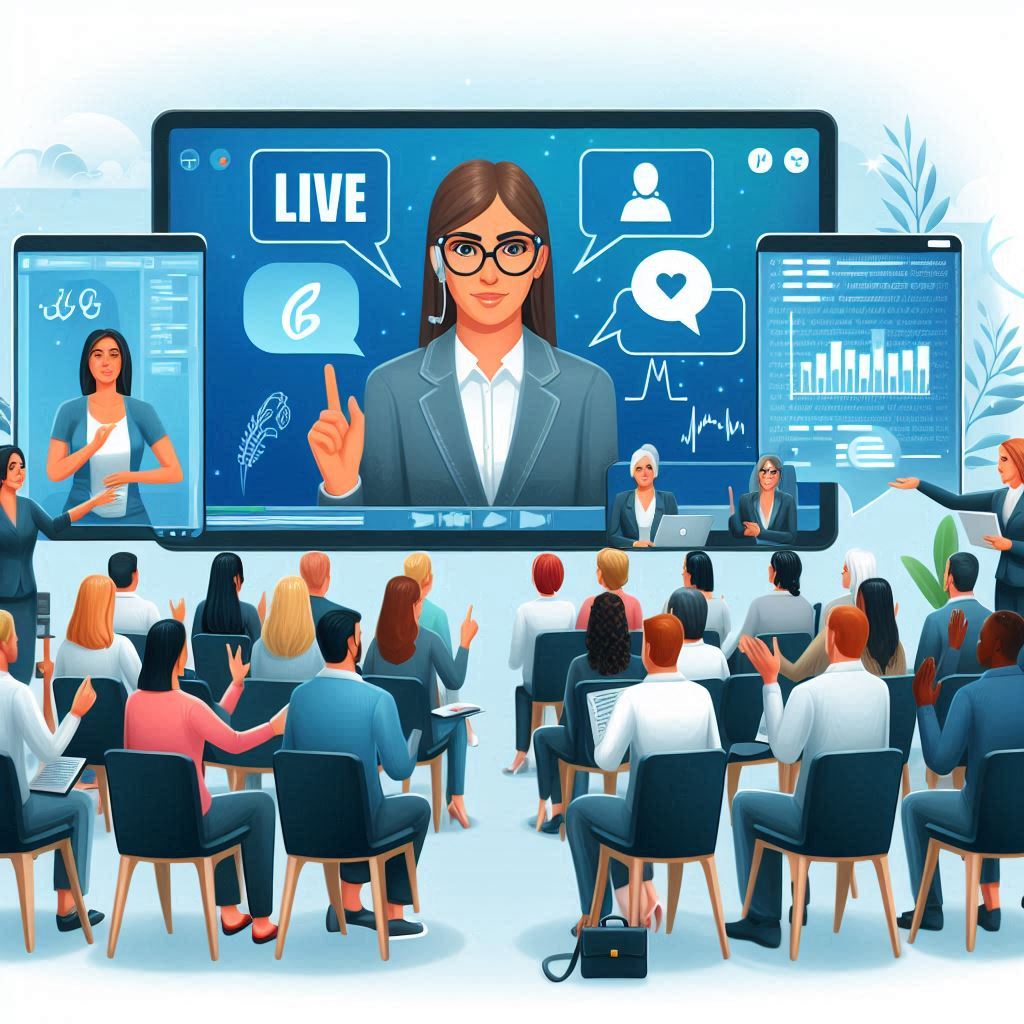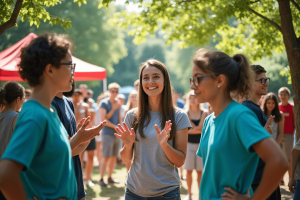
Creative Ways to Make Virtual Events Accessible for the Deaf
- Posted by Cicada Sign
- Categories Blog
- Date September 14, 2024
- Comments 0 comment
The rise of virtual events has made it easier for people from all over the world to connect, learn, and collaborate. However, for members of the Deaf and hard-of-hearing (HoH) community, accessibility challenges in virtual spaces still persist. Ensuring that virtual events are inclusive and accessible requires creativity, planning, and a commitment to meeting the needs of all participants.
In this post, we’ll explore several innovative ways to make virtual events accessible for Deaf and HoH individuals. By implementing these strategies, you can create a more inclusive experience for everyone, regardless of their ability to hear.
1. Provide Professional Sign Language Interpreters
One of the most effective ways to ensure accessibility is to provide sign language interpreters during virtual events. Platforms like Zoom, Microsoft Teams, and others allow for the integration of interpreters who can sign the content in real time.
- Tip: Make sure the interpreter is clearly visible at all times and that the platform allows for pinning or spotlighting their video feed. Participants should also be able to resize the interpreter’s screen according to their preferences.
2. Use Real-Time Captioning and Subtitles
Real-time captioning (also known as Communication Access Realtime Translation or CART) is essential for Deaf and HoH participants. AI-powered captioning tools like Otter.ai, Google Live Transcribe, and Zoom’s built-in captioning can provide real-time text of what is being said.
- Tip: While AI captions are a helpful start, it’s advisable to have a human captioner review and correct the text for accuracy. For more complex or technical content, human oversight ensures higher quality.
3. Offer Pre-Recorded Video Content with Captions and Transcripts
For virtual events that include pre-recorded video content, providing captions and transcripts is a must. This ensures that Deaf and HoH participants can engage with the material at their own pace.
- Tip: When offering pre-recorded content, make sure to add accurate captions that reflect not only the dialogue but also significant background noises and music cues, which are often important for understanding the full context of the video.
4. Leverage Visual Aids
Deaf and HoH individuals often rely heavily on visual information. For virtual events, consider incorporating visual aids such as slides, infographics, or key points in text format to reinforce the information being discussed.
- Tip: Ensure that all visual materials are high-contrast and use accessible fonts. Sharing the materials before or during the event will also provide participants with an alternative method for engaging with the content.
5. Foster Interaction Through Chat and Polls
Encouraging participation through live chats, polls, and Q&A sessions allows Deaf and HoH attendees to actively engage during the event. Written forms of communication offer an additional, often preferred, medium for interaction.
- Tip: Have moderators actively monitor the chat and ensure that questions or comments made by Deaf participants are addressed. This also ensures they feel included in the conversation.
6. Assign Accessibility Facilitators
Accessibility facilitators can help guide Deaf and HoH participants through the event, troubleshoot technical issues, and act as a liaison between the organizers and the participants.
- Tip: Facilitators can provide one-on-one support if needed and ensure that Deaf participants are kept informed about any event updates or changes.
7. Test Technology Beforehand
Technical glitches can create significant barriers for Deaf participants. Always conduct thorough technology tests before the event to ensure that sign language interpretation, captioning services, and other accessibility tools are functioning correctly.
- Tip: Have a dry run where you check all accessibility features like interpreter video pinning, captioning accuracy, and chat interaction to ensure a smooth and accessible event.
Cicada Sign’s Mission: Enhancing Accessibility for All
At Cicada Sign, we believe that accessibility is a fundamental right, not a luxury. Our mission is to ensure that Deaf and HoH individuals have the same opportunities to learn, work, and engage in their communities as anyone else. Through our use of innovative technologies like AI-driven captioning, sign language education, and personalized learning platforms, we strive to break down barriers and create inclusive spaces where Deaf individuals can thrive.
As we continue to advocate for accessibility, we encourage all event organizers to adopt these practices and make virtual events a place where everyone—regardless of their hearing ability—can fully participate and contribute.
By incorporating these strategies, virtual event organizers can ensure that Deaf and hard-of-hearing participants feel included, respected, and able to engage meaningfully. With a bit of planning and the right tools, we can make sure that virtual events are accessible to all.





